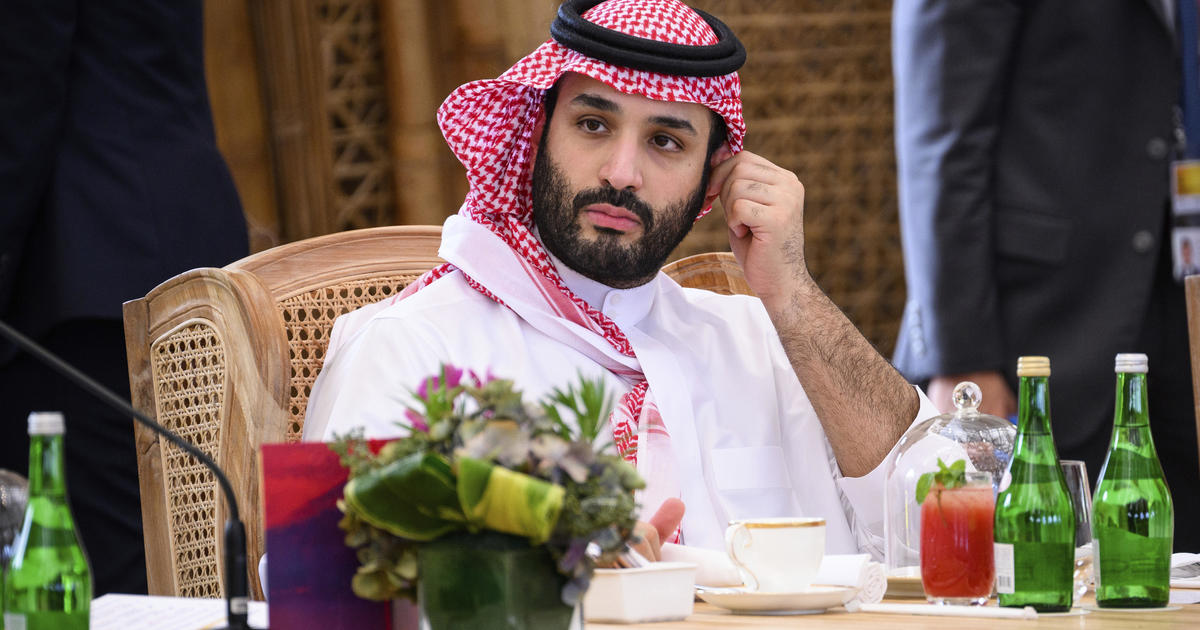Saudi Arabia’s crackdown on freedom of expression has resulted in the sentencing of artist Mohammed al-Hazza to 23 years in prison for cartoons deemed offensive to the leadership. This case highlights the ongoing challenges faced by artists and activists in expressing themselves freely within the Kingdom. The severity of the sentence underscores the government’s intolerance towards dissent and its efforts to control information. The imprisonment of al-Hazza is not an isolated incident but rather a reflection of a broader pattern of suppression, impacting various sectors of Saudi society. The incident also exposes concerns over the fairness and transparency of the Saudi judicial system, especially concerning cases that involve political dissent. This alarming trend warrants close attention as Saudi Arabia continues to undergo significant social and political transformation.
The Imprisonment of Mohammed al-Hazza
The Charges and the Sentence
Mohammed al-Hazza, a 48-year-old Saudi artist, received a 23-year prison sentence for creating political cartoons deemed offensive to the Saudi Arabian leadership. Initially sentenced to six years, his case was reopened, leading to a significant increase in his prison term. The charges against him included creating “offensive cartoons” published in the Qatari newspaper Lusail and social media posts considered “hostile” towards Saudi Arabia and supportive of Qatar. These accusations stem from a period when Saudi Arabia and several allies severed ties with Qatar, accusations that Doha denied. The prolonged incarceration and the opaque nature of the legal proceedings raise serious questions regarding the fairness and transparency of the Saudi judicial system. The sentence appears disproportionate to the alleged offenses, raising concerns about the use of the legal system to suppress dissent.
The Role of the Specialized Criminal Court
The case against al-Hazza was handled by Saudi Arabia’s Specialized Criminal Court, a court established to deal with terrorism-related cases. The court’s involvement in a case concerning political cartoons raises concerns about the blurring of lines between political expression and terrorism. Critics argue that the court is frequently used to suppress dissent and limit freedom of speech, with trials often lacking transparency and due process. The use of this court, designed for terrorism cases, in this context highlights a potential abuse of power and a tendency to criminalize acts of political expression. The lack of independent judicial oversight further contributes to concerns regarding the impartiality and fairness of these trials, ultimately undermining the rule of law. The opacity surrounding the proceedings raises serious doubts about the legitimacy of the accusations.
Broader Implications for Freedom of Expression in Saudi Arabia
A Crackdown on Dissent
Al-Hazza’s case exemplifies a wider pattern of suppression of freedom of expression in Saudi Arabia. Human rights organizations consistently report a significant crackdown on critical voices, whether expressed through online platforms or traditional media outlets. Artists, writers, journalists, and activists have faced harassment, detention, and lengthy prison sentences for expressing opinions perceived as critical of the government. This widespread suppression demonstrates the Kingdom’s unwillingness to tolerate any form of dissent, regardless of its nature or intensity. This chilling effect silences crucial voices and hinders any potential for open and informed public discourse, leading to a more restrictive and authoritarian political environment. The continued incarceration of individuals simply for exercising their right to free expression underscores a serious deficiency in respecting fundamental human rights.
The Crown Prince’s Reforms and the Reality of Suppression
Despite Crown Prince Mohammed bin Salman’s reform initiatives aimed at modernizing Saudi Arabia and opening it up to the world, the reality on the ground continues to demonstrate significant restrictions on basic freedoms. While economic reforms and social changes are underway, a significant disconnect exists between these initiatives and the reality for those who express views considered critical of the regime. This incongruity highlights the fragility of reforms in the absence of robust protection for fundamental human rights. The ongoing suppression of free expression underscores the limitations of the reform agenda and its inability to foster a genuine environment of freedom and inclusivity. The continuation of these practices casts a shadow on the image the Crown Prince attempts to present to the international community.
International Condemnation and Calls for Action
Global Concern and Human Rights Organizations
Al-Hazza’s case has drawn international condemnation, with human rights organizations like Amnesty International and ALQST expressing strong concerns. These organizations have long documented the deterioration of human rights in Saudi Arabia, particularly regarding freedom of expression. Their reports and statements frequently highlight the government’s suppression of dissent and its use of arbitrary detention. The widespread condemnation from international bodies adds pressure on the Saudi government to uphold fundamental human rights and adhere to international human rights standards. The international scrutiny is a significant aspect of this ongoing discussion because it sheds light on the situation and compels dialogue, potentially facilitating meaningful change.
The Need for Accountability and Reform
The international community must continue to call for the release of Mohammed al-Hazza and others imprisoned for exercising their right to freedom of expression. Furthermore, pressure needs to be exerted on the Saudi government to enact meaningful judicial reforms that ensure fairness, transparency, and adherence to international human rights standards. The lack of transparency and accountability within the judicial system allows for injustices like this one to take place. This necessitates pressure not just for individual releases but for a wider, system-level overhaul of Saudi Arabia’s judicial and legal processes to ensure its alignment with international norms on freedom of speech and human rights. Significant changes to existing laws and judicial practices are needed to truly effect tangible progress in freedom of expression.
Take Away Points:
- Mohammed al-Hazza’s 23-year sentence highlights the severe restrictions on freedom of expression in Saudi Arabia.
- The case underscores the problematic role of the Specialized Criminal Court in suppressing dissent.
- The incident exemplifies a broader pattern of crackdown on critical voices under Crown Prince Mohammed bin Salman’s rule.
- International condemnation and sustained pressure are essential for ensuring accountability and reform in Saudi Arabia.




